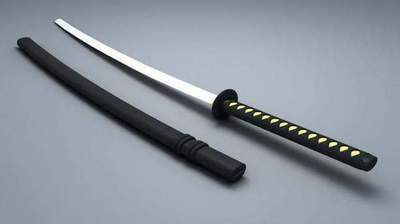What you need to know about egg donation
Oocytes or egg donation has not promoted as actively as blood donation, but ads with a proposal to hand over the reproductive material is now easily found in an elevator or on an entrance door. Heroine to figure out who can be a donor of reproductive, what is the procedure than it is dangerous and how much you can sell your own egg.
What training must pass a donor

Pass the egg - not the same thing as becoming a blood donor. A woman should undergo serious examination, pass a lot of tests and medical treatment if necessary - as a rule, it makes its own expense. From the obvious: do not drink alcohol, do not smoke and to eat the whole period of preparation - it is called the donor protocol.
Donors must be ready to receive contraceptives, with their help synchronize her cycle with the cycle of the recipient, so that it was possible to plant fresh, rather than frozen embryos.
The most difficult stage in the preparation - hormonal therapy. She needs to grow more eggs instead of one, which the female body produces once a month. Hormones are injected into the stomach to stimulate superovulation. Injections made about two weeks, during which the doctor periodically to check the growth of follicles and the state of ovarian hormones control the dose and duration of therapy.
Hormonal injections - this is a serious stress to the body. Patients may experience mood swings, moodiness, fatigue, abdominal pain, although sometimes during therapy occurs almost asymptomatic. When the follicles and ova have grown sufficiently, the doctor prescribes a daily puncture - direct extraction of donor material. Through the same training are those who wish to freeze their eggs or preparing to do IVF.
As undergoing surgery
Egg collection is considered to be a surgical operation, although minimally invasive. It passes under general anesthesia, so is fasting.
vaginal wall is pierced and a special cannula with it is recovered oocyte. All lasts no more than 15 minutes. After that, the patient moves away from the anesthesia in the House, it is allowed to eat and sent home - to travel alone is not recommended, it is best to call a taxi or ask someone for you to come.
Who can become a donor

Each clinic their demands to potential donors, but there are common for all the criteria. Give your egg can a woman aged between 18 and 35 years without excess weight, genetic and chronic diseases, diabetes and bad habits. Before becoming a donor oocytes could only woman who already have at least one child. In 2012, Russian law was amended to allow the egg to take nulliparous. Nevertheless, many clinics prefer to deal with their mothers - so they can reliably make sure that a woman is able to have a baby without a genetic disease. As a rule, reproductive donation in Russia is carried out on condition of anonymity, although the egg may donate and close relative of the patient.
Clinic staff thoroughly check genealogy, analyze the physical and psychological condition of the woman, so do not try to hide from them some information about yourself. they are also recorded in detail the external parameters - it is necessary to choose the most similar to the recipient donor.
The dangerous egg donation
Due to the fact that clinics are interested to sell more eggs, they often do not share all the information about the risks and generally talk about the donation of oocytes as a safe and simple procedure. However, such a hormonal bomb can not go to the body without a trace, and mood swings - only the most harmless symptom.
The actual procedure of withdrawal of eggs can also lead to health problems. The first of them - ovarian hyperstimulation syndrome, it occurs when the drugs too strong effect on the follicles. Ovaries increase in volume, disturbed generation urine condenses blood appear edema, abdominal pain. If the disease is mild enough dropper, but in severe cases may require hospitalization.
Another risk for oocyte donors - internal bleeding, which can occur at any surgical intervention.
In the long term damage of the reproductive organ donation can result in hormonal failure.
But this is only understandable risks about the possible dangers of such procedures, little is known as long-term observation of the patients is almost non-existent.

There is evidence that a woman should take the egg no more than 6 times in my life, and no more than once every four months - according to Human Reproduction, in this case, the body time to recover and will not receive long-term harm. However, no conclusive studies on this point and the process is not controlled - in clinics do not ask, handed over whether the potential donor egg before and how many times. This is not the only problem with the reproductive organ donation in our country. The patient often does not tell all the risks, in addition, after the puncture of the clinic is not responsible for its health and long-term problems caused by hormone therapy, the donor will have to cope and is already the most for their money.
All these risks do not change the fact that the egg can pass without serious discomfort and health risks. The success of the procedure depends largely on the state of the organism particular women and quality of the clinic staff.
What are paying donor oocytes
Despite the complexity of the procedure and the possible harm to health, the egg in our country is quite cheap to buy - the prices in different regions and clinics vary from 40 to 80 thousand. And this despite the fact that the recipients pay for it to get an egg is many times greater. Therefore solved on donations solely for the purpose of earnings, not from a desire to help people become parents - not the best and safest way to get rich.













































